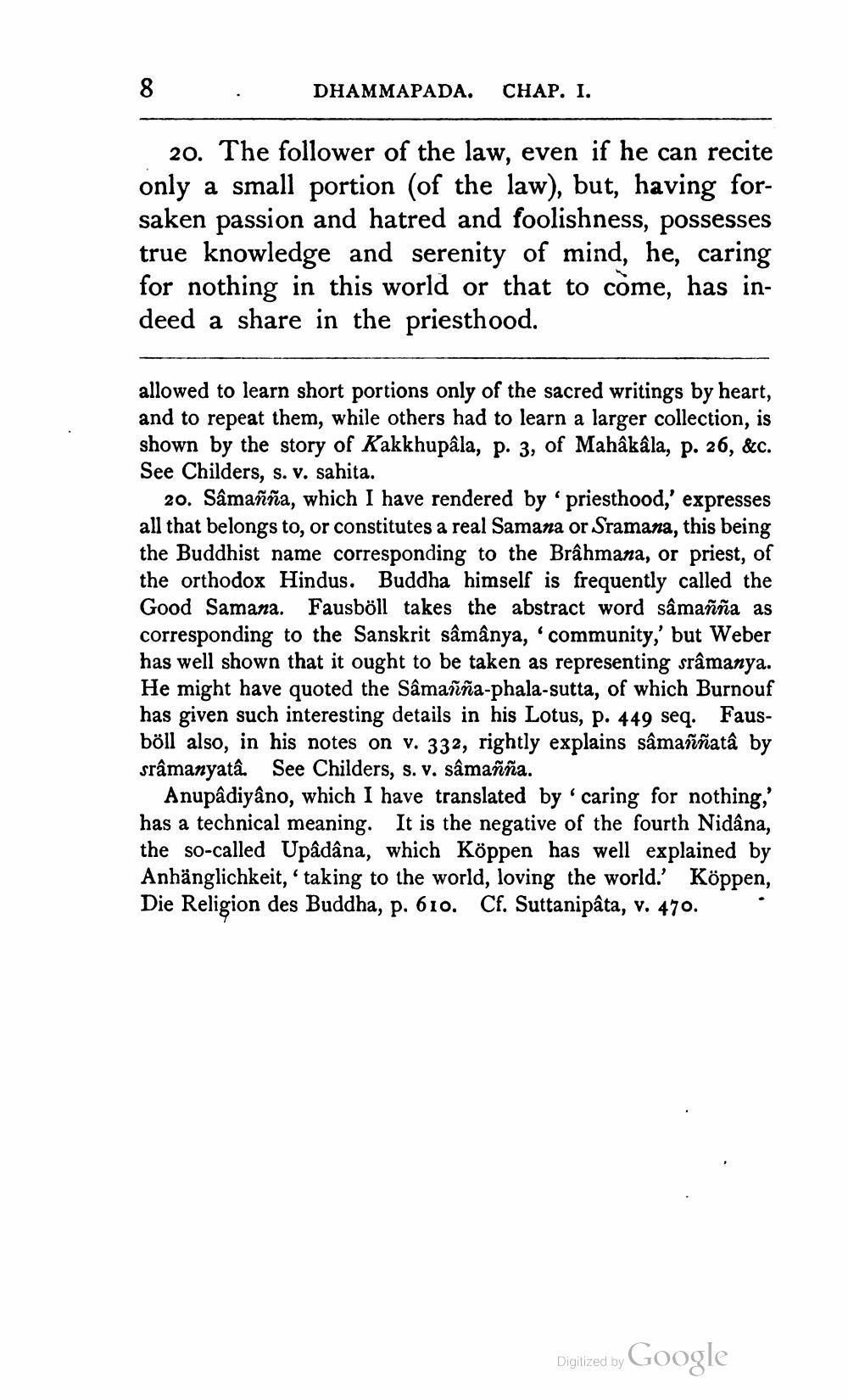________________
DHAMMAPADA. CHAP. I.
20. The follower of the law, even if he can recite only a small portion (of the law), but, having forsaken passion and hatred and foolishness, possesses true knowledge and serenity of mind, he, caring for nothing in this world or that to come, has indeed a share in the priesthood.
allowed to learn short portions only of the sacred writings by heart, and to repeat them, while others had to learn a larger collection, is shown by the story of Kakkhupâla, p. 3, of Mahâkâla, p. 26, &c. See Childers, s. v. sahita.
20. Sâmañña, which I have rendered by priesthood,' expresses all that belongs to, or constitutes a real Samana or Sramana, this being the Buddhist name corresponding to the Brâhmana, or priest, of the orthodox Hindus. Buddha himself is frequently called the Good Samana. Fausböll takes the abstract word sâmañña as corresponding to the Sanskrit sâmânya, community,' but Weber has well shown that it ought to be taken as representing srâmanya. He might have quoted the Sâmañña-phala-sutta, of which Burnouf has given such interesting details in his Lotus, p. 449 seq. Fausböll also, in his notes on v. 332, rightly explains sâmaññatâ by srâmanyatâ. See Childers, s. v. sâmañña.
Anupâdiyano, which I have translated by caring for nothing,' has a technical meaning. It is the negative of the fourth Nidâna, the so-called Upâdâna, which Köppen has well explained by Anhänglichkeit,' taking to the world, loving the world.' Köppen, Die Religion des Buddha, p. 610. Cf. Suttanipâta, v. 470.
Digitized by Google




